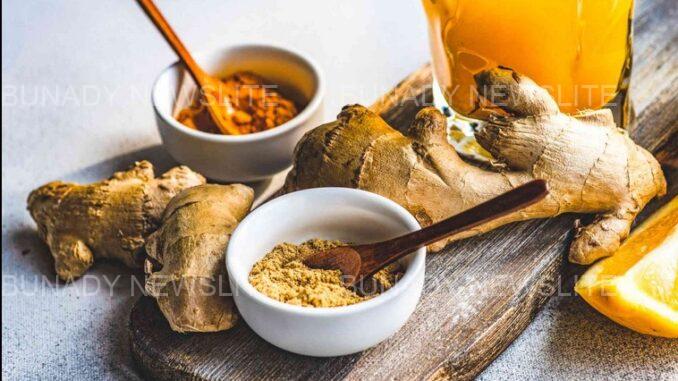What Happens to Your Blood Pressure When You Take Turmeric
Best known as a bright yellow spice, turmeric is also found in dietary supplements. Some studies suggest it may offer small benefits for people living with high blood pressure (hypertension). The main active compound in turmeric is curcumin, which gives it both its golden color and many of its beneficial properties, including its potential blood pressure–lowering effects....READ ORIGINAL & FULL CONTENT FROM SOURCE |
PAY ATTENTION TO THIS: Every Sneezing Human Being Must Read This: The Truth About What Actually Happens Whenever You Sneeze.
But because curcumin can interact with certain drugs, it’s important to talk to a healthcare provider before adding turmeric to your routine.
How Turmeric Affects Blood Pressure
1. May Modestly Lower Blood Pressure
The research on turmeric’s blood pressure benefits has mixed findings. Some clinical trials have shown mild improvements, while others have found no effect at all, as follows:
In one analysis of 11 studies, turmeric didn’t significantly lower either systolic blood pressure (SPB, the first or top number, measuring the maximum pressure of blood on artery walls as the heart contracts) or diastolic blood pressure (DBP, the second or bottom number, measuring the pressure between heartbeats). Still, some people saw their SBP drop by 1.24 millimeters of mercury (mm Hg) after taking turmeric for 12 weeks.
Another review analyzed 17 studies and found turmeric had no meaningful effect on either SBP or DBP. However, women who took turmeric for over 12 weeks saw small drops in both readings: SBP by 1.55 mm Hg and DBP by 1.73 mm Hg.
Other studies found similarly modest results, with a DBP reduction of 0.76 mm Hg,1 and others suggest a possible SBP drop of about 1.09 mm Hg after eight weeks.
Yet another study looked at people with fatty liver disease who took 3,000 mg of turmeric daily for 12 weeks. Only systolic pressure improved—there was no change in diastolic readings.
So, is turmeric good for blood pressure? Maybe—but the effects are likely to be modest and inconsistent. The good news: Turmeric appears to be safe for most people when used in appropriate amounts.
How Quickly Does Turmeric Lower Blood Pressure?
It is not easy to say how fast turmeric works for blood pressure. Based on studies, it may take eight to 12 weeks of consistently taking turmeric or curcumin extract supplements to start seeing a difference in blood pressure readings. Even then, not all study participants saw results, and any improvements were usually small.
If you are not reaching your blood pressure goal while taking turmeric supplements, it’s best to talk with your healthcare provider about other options.
2. May Reduce Vascular Inflammation
Research suggests that turmeric can reduce inflammation in your blood vessels—at least to a degree. Its active compound, curcumin, has well-documented anti-inflammatory and antioxidant effects, which may support vascular health and protect against high blood pressure.
High blood pressure can damage blood vessels over time, making them thicker, stiffer, and less able to carry blood efficiently. This can increase the risk of cardiovascular problems, such as stroke or heart attack.
Some studies indicate turmeric may help by lowering oxidative stress (an imbalance between harmful molecules called free radicals and helpful antioxidants that can cause cell damage) and supporting healthier vessel structure. However, these benefits may not apply to everyone, and more research is needed to confirm the effects.
While turmeric’s overall effects on vascular inflammation appear modest, it still shows promise as a supportive option for maintaining healthy blood vessels.
3. Can Help Relax Blood Vessels
Some evidence also shows that turmeric can improve the dilation (or widening) of blood vessels, which helps blood move more easily through your body and contributes to decreased blood pressure. However, its ability to reduce blood vessel stiffness may be limited.
How to Use Turmeric for Blood Pressure Management
Since turmeric is not a medication, it is not subject to the Food and Drug Administration (FDA) regulations that are placed on drugs. This means there is no official dosage range for turmeric supplements.
In clinical studies, people have taken turmeric or curcumin supplements ranging from 50 milligrams (mg) to 3,000 mg daily for anywhere from one to six months. Most benefits were seen with 1,500 to 3,000 mg daily taken in divided doses for up to three months.
Turmeric supplements come in many forms, including capsules, tablets, powders, liquids, and chewables. Note that topical versions of turmeric are sometimes promoted for skin issues, but only oral forms have been linked to blood pressure benefits.
Check the product label for specific directions, but most turmeric supplements are better absorbed with food. In fact, pairing it with the following foods or supplements may help your body absorb it better.
PAY ATTENTION TO THIS: Every Sneezing Human Being Must Read This: The Truth About What Actually Happens Whenever You Sneeze.

